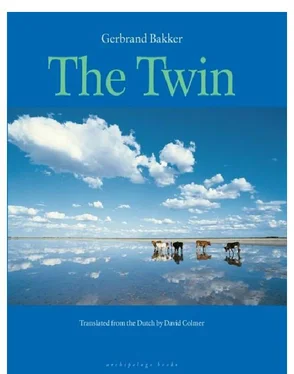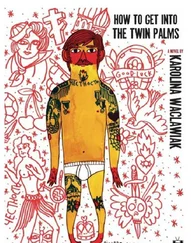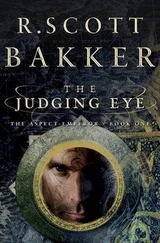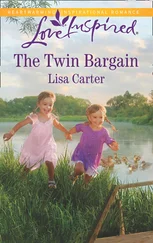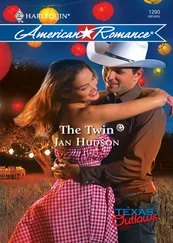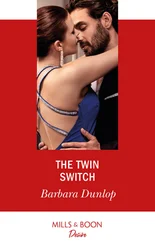“Preferably on an equal footing,” he said.
I nodded again and felt my lower lip start to tremble. He stepped over to me and put a hand around the back of my neck. “It’ll come,” he said. He checked the trembling of my lip by kissing me on the mouth the way you might kiss your grandfather on the mouth once in your life when your grandmother has died. “All that will come in time,” he said again, pushing me softly towards the front door. His bloodied underpants were still lying on the floor next to the chair I had been sitting in.

Mother and Henk were in the kitchen. The light over the table was on.
“What happened to you?” asked Mother.
“Fell over,” I said.
“Who bandaged it like that?” She was already going down on her knee to take the bandage off and do it better.
I stepped back. “Jaap.”
“Were you at Jaap’s?”
“Uh-huh.”
“Have you been drinking?”
“Yes. Beer.”
Henk frowned at me.
All the doors were open and I looked through the hall at Father, mainly to avoid having to look at Henk. He was sitting like a slab of stone in his chair in the living room, not saying a word. He gave an exaggerated rustle to the newspaper he wasn’t reading.
Riet wasn’t there. As I mentioned, it was a weekday and it was almost time to go to bed.
Afterwards, in late August and early September, I dropped in on Jaap a few more times.
“Why do you keep going to Jaap’s?” Father asked suspiciously.
“No reason,” I said.
“Has he found somewhere else to live yet?”
“Dunno.”
“Or another job?”
“I don’t think so.”
“What do you talk about then?”
“All kinds of stuff.”
“You never used to go to his place.”
“Now I do.”
“Strange,” said Father slowly. “Very strange.”
We drank beer and sat opposite each other. Him on the sofa, me in the armchair. I felt like taking up smoking, but didn’t. It looked so peaceful. He never offered me his tobacco pouch. He never spoke about Father during any of my visits. He hardly spoke at all. If there was talking, it was me that did it. I was young. Mainly I thought about myself. I hardly asked him anything. I don’t know how he got that crooked nose. I didn’t even know where he came from. From early September onwards I had a lot to say about my first days at university, my lecturers and my fellow students. He wasn’t surprised that I hadn’t become a farmer. “You don’t look at the animals the way your brother does,” he said.
“How’s that?” I asked.
He couldn’t explain. “You’re different. You see things differently. He probably looked at that bird differently too.”
“I didn’t look at her at all.”
“See?”
Somehow he helped me through something: at home I could look Henk in the eye and more or less ignore Riet. “All that will come,” I heard him saying for a long time, even after he had left.
The last time I went to the laborer’s cottage was mid-September. There were cardboard boxes in the living room. The bookcase was already half empty. The rug was rolled up behind the sofa. The radio was no longer plugged in.
“I’m leaving tomorrow,” he said. “Tell your father.”
“Where are you going?” I asked.
“Back to Friesland.”
“Do you come from Friesland?”
He said something in Frisian.
“What?”
“I said, “Haven’t you ever noticed my accent?”
“No, never.”
“Drop by some time.”
“I will.”
He wrapped his big hand around the back of my neck one last time. “Will you be okay?”
“Sure,” I said.
“Good.”
Nothing I was waiting for came in time. I never saw Jaap again either. In the autumn I went into the empty cottage now and then. Here I had been someone. The tobacco smell lingered for a long time. Seven months later Henk was dead and a few days after that I was back milking cows.
I’ve been doing it ever since.
For a while now the weather has been very still. The weather report in the newspaper and the weather girl on TV — who’s so cheery it always sounds like she’s saying hello when she talks about a high — predicted sun, but we got mist. Cold mist. A couple of days ago the sun started shining after all, but it’s still cold. Freezing February weather. There’s a layer of ice on the ditches but I needn’t bother going to Big Lake; the temperature creeps up above zero in the daytime. Ada’s husband is muck spreading and he’s not the only one. Ada herself has washing on the line. The weather is perfect for both things, but they’re not a good combination: manure and clean laundry.
I love sun in February. This time last year Teun said, “Dead wood is beautiful too.” I don’t know what made him come out with it but he was right, even though the trees and bushes without leaves aren’t dead. Low sun on bare branches is beautiful. On its branch in the ash, the hooded crow is more alert than usual and more cyclists come past than a few days ago. The sun has a different effect on Henk. He’s in bed.
This morning I woke him up by knocking on the door.
“Go away,” he shouted.
“It’s five thirty.”
“So?”
“Time to get up.”
“Get up yourself.”
“I already have.”
“Ha-ha-ha.”
I opened the door, felt for the light switch with my left hand and turned on the light. He had pulled the duvet up over his head. The African-animal cover was in the wash, he was now sleeping under dark-blue letters and numbers. Henk doesn’t have an alarm clock. “What’s the matter?” I asked.
“Nothing.”
“Why aren’t you getting up then?”
“Don’t feel like it.”
“Get out from under that duvet.”
“Why?”
“So I can see you.”
“Why?”
“Because.”
“Don’t be so childish.”
“Look who’s talking.”
The duvet slipped down. His ginger hair had grown, it was time for him to get it cut again. He stared at me with drowsy eyes. There was a Walkman among the clothes on the floor next to his bed. A few butts lay in the ashtray on the bedside cabinet. Teun’s poster — still rolled up — was against the skirting board.
“Could you move out of the doorway, please?” he asked.
“Why?”
“It looks horrible, you standing there like that. It’s scary.”
I walked into the new room and sat down on the chair. Henk slid up in bed so that his shoulders came to rest against the wall. The window was open, it was cold. Despite the twenty-five-watt bulb, I could see the hairs on his arms standing up. “What’s the matter, Henk?”
“Nothing. I told you.”
“Why don’t you get up then?”
“I’m scared.”
“What of?”
“I don’t know.”
“I don’t understand.”
“Me neither.”
He keeps snapping back and forth between boy and man. Sometimes I feel like I should take him by the hand, at other times he towers over me. He is unpredictable. He took the packet of cigarettes from the bedside cabinet and lit one, blowing the smoke up at the open window.
“I’d rather you didn’t do that,” I said.
“No doubt,” he said. And then, in a different tone. “I hear noises, at night.”
“What kind of noises?”
“Animals. At least I hope so.”
“That’s no reason to be frightened, surely?”
“Short, high-pitched yapping noises.”
“That’s the coots.”
“It drives me up the wall. And your father coughs in bed.”
“Is that so terrible?”
“I feel sorry for him,” he said quietly.
Читать дальше
